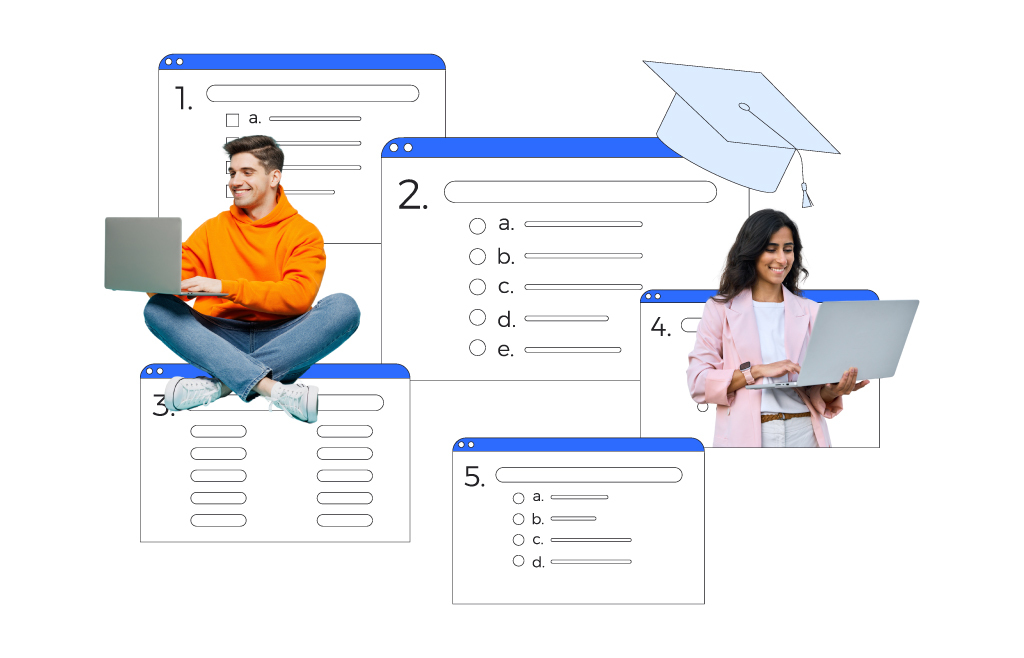
In these changing times, where everything is moving at a fast pace, corporate training and employee development are no longer optional, just checkboxes — they’ve become strategic priorities that help businesses keep up with the pace, meet customer demands, achieve growth & competitive edge.
Did you know, businesses using an LMS report a 50% reduction in training time while improving employee performance and engagement.
But, training methods no longer cut it. It is expensive, outdated, and resource-intensive, and employees are looking for something that keeps them engaged.
That’s where Corporate LMS comes in, transforming how organizations onboard new hires, deliver ongoing training, and upskill their workforce in a flexible, measurable, and engaging way.
And, there is much more that corporate LMS can do.
Want to know what LMS is & how it benefits corporate business? Well, in this blog, we’ll be covering exactly that & so much more that helps businesses make the right decision. Let’s get to it.
Understanding the Corporate LMS
A Corporate Learning Management System (LMS) is a software that businesses can use to create, publish, deliver, and track employee training in one place.
It’s designed specifically for the modern corporate businesses that like to streamline the onboarding process, ensure consistency in the process, upskill employees(in the right way), keep everyone aligned with business goals & get the desired results.
“A good LMS helps organizations turn learning into a daily habit, not just an occasional event.”
— Josh Bersin, Global HR Industry Analyst
In short, a corporate LMS is a centralized, smart training hub that helps businesses grow and empower their workforce.
Additional Read:
Why Hosting Your LMS on WordPress is a Smart Move for Modern Businesses?
The Imperative for Corporates to Adopt Their Own LMS!
1. Centralized Training Management
One of the biggest advantages of a corporate LMS is having all training materials, progress tracking, and employee learning records in one unified platform. Businesses no longer need to deal with scattered documents, emails, outdated manuals, different trainers, training materials, and employee training data. Be it for creating onboarding modules, assigning skill-based courses, or tracking learner progress, everything is neatly organized and accessible from a single platform.
b. Customized Learning Experiences
No two businesses are the same — their goals, values, processes, teams, and clients all differ. That’s why a one-size-fits-all approach to employee training doesn’t work. Modern LMS platforms are designed to support personalized learning experiences. Businesses can tailor content based on roles, departments, or skill levels, set custom learning paths, incorporate the company’s branding, and even define learning objectives based on performance targets.
3. Efficient Skill Gap Analysis
Understanding where the team stands in terms of skills is crucial for effective training. Skill gap analysis helps identify what employees know, what they need to learn, and where the organization should focus its development efforts.
A good LMS simplifies skill gap analysis. Through quizzes, tests, reports, and interactive evaluations, it helps businesses pinpoint which skills employees lack or need to improve. This data-driven approach allows businesses to design training sessions that directly address gaps, track improvements over time, and ensure development.
4. Enhanced Compliance and Reporting
In nearly every industry, following rules and regulations is essential. Without proper training, companies risk costly penalties, legal issues, and damage to their reputation. This is where a good LMS becomes invaluable. It ensures up-to-date compliance training, sends automatic reminders for renewals or refresher courses so everyone stays informed.
Businesses get detailed reports, making it easy for managers and HR to identify gaps, ensure everyone is up to date, and generate proof of compliance during audits. It helps them stay on top of regulatory requirements and reduce the risk of violations.
5. Cost-Effective Training Solutions
Last but not least, the reason why corporate businesses need LMS is its cost-effectiveness. Traditional training methods — like in-person sessions, printed materials, etc — can be expensive and time-consuming. An LMS eliminates many of these costs by digitizing. Employees can access training anytime, from anywhere, reducing time away from work and improving productivity. Plus, once a course is created, it can be reused, updated without additional costs.
To Wrap Up!
Well, here’s a wrap & we hope to explain why corporate businesses need their own LMS. It’s a smart move for businesses that want to stay competitive, agile, and growth-focused.
From streamlining training delivery and personalizing learning paths to ensuring regulatory compliance and reducing costs, a modern LMS transforms how companies onboard, train, and upskill their workforce.
Still exploring the right LMS for your business?
Need expert guidance tailored to your goals?
Let’s talk! Schedule a call with the SkillTriks team today and take the first step toward smarter, more effective corporate learning.